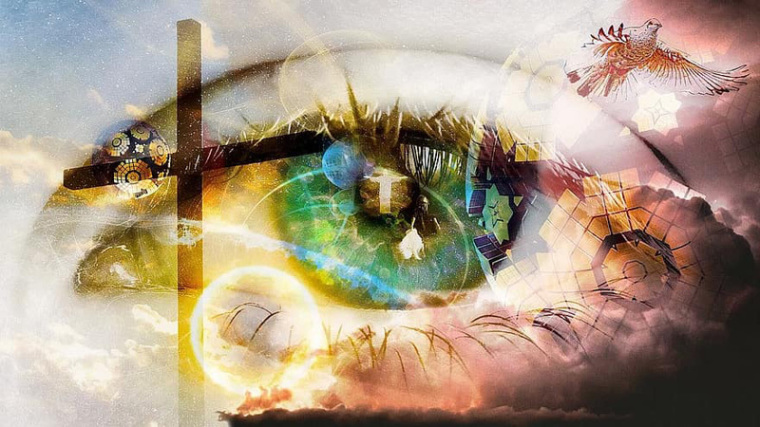
“Running away isn’t the same as being free” – Juliana Crain speaking as she flees from the Nazi and Japanese victory in World War 2. It stands as a reminder to us today that we should not be accustomed to the norms of this fallen world.
Events of recent years appear to many as having grown closer to that of fascism and the entrance into a period where yearning grows for an alternate universe where freedom can be found.
The film
The filmic adaptation of ‘The Man in the High Castle’ (on Amazon Prime) from Phillip K. Dick’s 1962 novel has withstood the test of time not only from the geo-political environment from the twentieth to the twenty-first century but is a testament to our humanity’s innate metaphysical desires.
Having been enlightened by the alternate reality of a land of the free being the home of the brave, the lead protagonist Juliana Crain, inspired by her sister’s sacrifice for the cause of liberty, seeks to revive hope and passion as an escape from the doldrums of living in occupied territories of the former United States of America.
In seeing through the melancholy of whether accepting begrudgingly or not Nazism, anarchy or any other human ideologies, ‘The Man in the High Castle’ speaks to our deeper consciousness as we all have to face up to the reality of choosing the way we want to live not just in our current world but into eternity.
As part of the Resistance movement, Juliana Crain traverses both current time and alternate spaces. The questions of life and death are all the more pertinent with the existence of oneself in a different world resulting in that reality’s history being altered.
She taps into the desire for an ultimate escape or crossover within all of us which can never be crushed no matter the social or political ideologies that attempt to overload us.
Juliana Crain chooses to not let her sister’s sacrificial death for the Resistance be in vain. She begins a new chapter in her life not for vengeance but to transfigure into the cause of making a real difference for a better world.
Eventually both Reichsmarschall John Smith and Chief Inspector Takeshi Kido see the need for a way out of the corruption of the human condition.
Both Nazis and Japanese have culpability in the death of Jews, the persecution of African Americans, and discrimination against homosexuals among a host of atrocities led by Reichsmarschall Smith and Inspector Kido.
Reichsmarschall Smith is forced to confront not only his loss of favour with the German Reich but the unravelling of his family after the forced euthanasia of his firstborn son as part of the Nazi eugenics programs.
Having surveilled Juliana Smith, the Reichsmarschall discovers access to the alternate world of an American victory where his son is very much alive and subsequently formulates a plan (which turns fatal for himself) to kidnap his alternate son into the current world to atone for the loss of his child.
Also, towards the end of the show, Inspector Kido reeling in mental anguish from years of brutally executing opponents and their families without trial, seeks to atone for his actions in forfeiting his place to return to the Japanese homeland to his son.
In remaining behind in servitude with the Yakuza which has aligned itself with the Black Communist Rebellion, Kido seeks to atone for his misdeeds by cooperating with the rebuilding of the new world order including a state led by African-Americans on the west coast of America.
Reality
The struggle to find the true meaning and purpose of our existence is the unescapable reality that confronts us all, but it is through our choice to seek the eternal kingdom that is free from the human corruption of this world that our hope is found.
No matter how hard we try to run away from corruption or seek to find or make peace with ourselves and our surrounds using our own human strengths, we will fail as the choice to live our lives our own way without Jesus Christ leads to nothing but death and eternal destruction.
No matter the riches, power, ability to see into other worlds or their lack of that we possess in this world, all is meaningless without true salvation which is found in no one else but Jesus Christ.
No matter how hard we try to atone for our sins, there is nothing that we can humanly do to cross over from our wrath of death into life in a new world unless we have accepted the death and resurrection of our Lord Jesus Christ.
This is best put in Ecclesiastes chapter 12 verse 5 “when people are afraid of heights and of dangers in the streets; when the almond tree blossoms and the grasshopper drags itself along and desire no longer is stirred. Then people go to their eternal home and mourners go about the streets”.
Reading this verse in its context, the writer reminds us of the importance to hold fast to God’s teachings from a young age instead of living as a rebellious teenager by doing anything and everything possible under the sun.
And in Ecclesiastes chapter 12 verse 8, we learn that everything that we can achieve, acquire, or reckon with our minds is “Meaningless, Meaningless…”, hence every character in ‘The Man in the High Castle’ has misplaced their hope of salvation and redemption.
Even though Reichsmarschall Smith may be able to find a better world with his son, Inspector Kido having the chance to rebuild a country, and even Juliana Crain taking on the risky task of spreading anti-fascist films to spur hope for renewal, none will be saved without Jesus Christ.
Juliana Crain may have found the maker of the anti-fascist films as ‘The Man in the High Castle’ but her adventures should ultimately be a reminder for us not to forsake the metaphysical realities and the finite question of how do we want to live our life for the eternal future.
The real ‘Man in the High Castle’ is not an American film maker but our Father in heaven with the risen Jesus at His side.

Roydon Ng is a Christian writer and Baptist seminary graduate from Western Sydney.
Soli Deo gloria.
Follow @RoydonNg on Twitter
Email: roydon@roydonng.com.au
Roydon’s previous articles are available at: https://www.christiantoday.com.au/by/roydon-ng